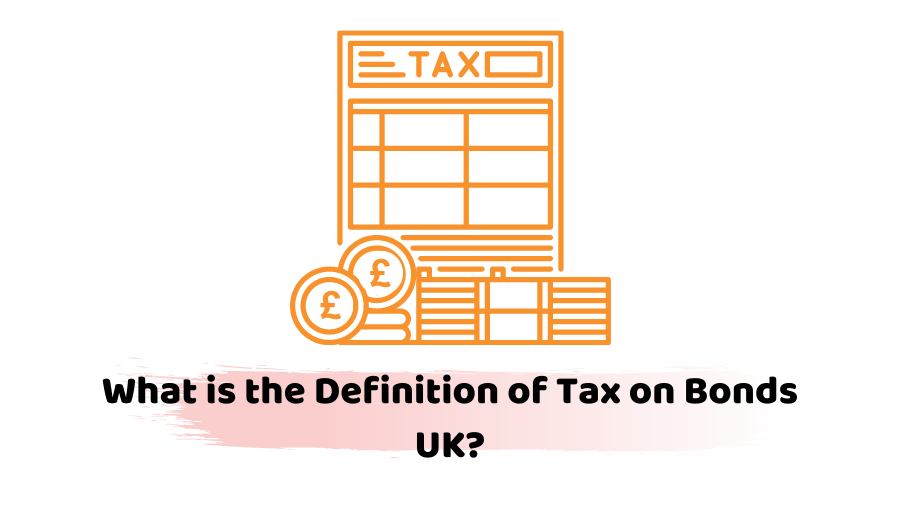Tax on bonds UK often create confusion among the bond investors due to the variations in taxes they have to pay at different times. However, we will help you by giving you a comprehensive guide on the bonds and how does it work in the UK.
Different types of bonds and the income levels of investors come with many complications, creating confusion among the bondholders. To avoid this perplexing and ambiguous situation, continue reading this article and you will find yourself in a clear position to understand how the bonds work in the UK.
First of all, we will discuss what the bonds are and their different types in the United Kingdom. After this, we will discuss what the chargeable events are and how to save tax by the cash in process at different stages of the bond holding period. So, let’s start our discussion!
If you’re looking for an expert tax advisor in the United Kingdom, Accotax is the right place where you can hire qualified chartered accountants and tax advisors instantly.
What Are Bonds In the UK?
Bonds are the safest form of investment as they are guaranteed by the government. Similarly, different corporations also issue bonds to get loans. Whenever a buyer holds a bond for a particular period, he is entitled to a specific level of interest rate on it for the specified time. When the bonds mature, the bondholder receives the principal or the face value on it of the amount.
On the other hand, the income earned on the bonds is liable to income tax by the Human Revenue & Customs (HMRC). But, not all the income gained on the bonds comes under the category of chargeable events.
Before we discuss the chargeable events, let’s discuss the different types of bonds in the United Kingdom!
What Are the Different Types of Bonds in the UK?
Different types of bonds are available which vary in terms of maturity, interest payments and the price of the bonds. On the other hand, the issuer of the bonds also makes a distinction between the bonds in the UK. Let’s discuss!
- Gilts or UK Government Bonds
- Undated or perpetual Gilts
- Indexed Linked Gilts
- Conventional Gilts
- PIBS or Permanent Interest Bearing Shares
- Convertible bonds
- Subordinated bonds
Although these different types of bonds vary from each other, they pay the face value with some income at maturity. The real problem arises with the tax on bonds UK. So, let’s move on to this core issue of the bondholders in the UK!
What Are the Chargeable Events?
The chargeable events occur when the bondholders have to pay tax on the earned income on the bonds. The two primary chargeable events are the events when he earns or gains money on the bonds either by getting interest payments or by selling a bond, ultimately earning a profit.
Death Benefit: If a bond jointly insures two persons, the death of one person does not result in a chargeable event. So, it is not a chargeable event as it does not lead to getting a benefit until the death of a second person occurs.
Assignment: Similarly the transfer or the assignment of bonds does not lead to a chargeable event. Because when a bond is gifted to someone, the bondholder does not gain any benefits in terms of money, so he will not pay any taxes.
The 5% Rule: The rule of 5% is applied when you cash in the 5% of the total amount invested. If the cash in increases at the end of the policy years, the bondholder must pay the tax. It is counted as the tax-deferred allowance instead of the tax-free. If the accumulated cash withdrawals cross the threshold of the total investment, then the next withdrawals will be taxable.
Part Assignments: Part assignments may happen as a result of a divorce. So, part assignments are chargeable events as the bondholders get a gain as a result of part assignments.
Policy Loans: This is a loan arranged as an agreement with the insurer, including a third party in this process. This is because it is considered a loan made to a person. If the interest is not paid by the insurer, it will be counted as an additional loan. Moreover, the repayments are considered as the additional premiums by the insurer.
Similarly, maturity is also considered the chargeable event under certain conditions. In simple words, any event leading towards the earning of the profits is treated as the chargeable event in the UK bonds taxation system.
Taxes On Bonds UK
The taxes on bonds are levied up to 20% on the earnings. However, if you withdraw up to 5% every year for a period of 20 years, the tax will not be charged. Similarly, you can withdraw up to 10% of the total investment, if you have not made any withdrawals in the previous. This is because the withdrawals are treated as the deferred allowances rather than the tax-free payments.
Conclusion
Lastly, we can conclude that any income earned on the bonds either by the interest payments or by earning a profit on the maturity of the bonds can make someone pay taxes as it could increase their income level.
On the other hand, there are some chargeable events where the investors have to pay tax on bonds UK on the gains. It is also possible that the income earned from bonds may not increase the tax bracket of the investors and they will the basic tax rate. On the other hand, some investors will get to the higher tax brackets and they have to pay higher income tax ultimately after earning higher gains.
Let’s speak to one of the professional and experienced tax advisors in the United Kingdom at Accotax!
Disclaimer: All the information provided in this article on Tax on Bonds Uk including text and graphics is general in nature. It does not intend to disregard any of the professional advice.





















































